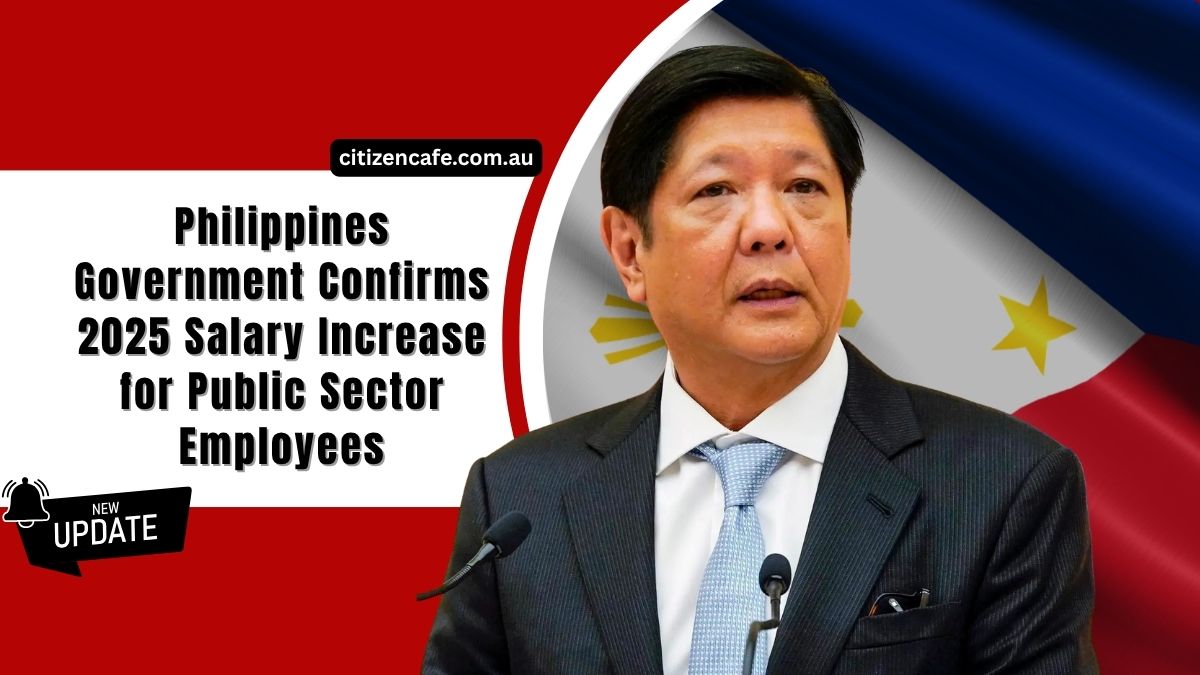The Philippine government has officially confirmed a salary increase for government workers in 2025, marking a major step in its commitment to improving the livelihood of public sector employees.
Announced in early June 2025, this initiative ensures a systematic wage increase for qualified public servants starting January 2025.
This increase represents the final installment of the Salary Standardization Law V (SSL V), an effort aimed at narrowing the gap between public and private sector pay.
With inflation and the cost of living still on the rise, this wage boost has been welcomed by government employees and labor groups nationwide.
2025 Government Salary Increase: Detailed Breakdown
The new salary structure will vary depending on the salary grade (SG) of the employee. Below is a snapshot of the updated rates for selected grades:
| Salary Grade | Current Monthly Rate | New Monthly Rate (2025) | Approximate Increase |
|---|---|---|---|
| SG 1 | PHP 13,000 | PHP 13,700 | PHP 700 |
| SG 10 | PHP 22,190 | PHP 23,200 | PHP 1,010 |
| SG 20 | PHP 54,251 | PHP 56,870 | PHP 2,619 |
| SG 24 | PHP 86,742 | PHP 90,420 | PHP 3,678 |
| SG 27 | PHP 122,841 | PHP 128,400 | PHP 5,559 |
These adjustments illustrate the government’s intent to boost compensation across various levels, ensuring public servants receive meaningful financial support.
Who Qualifies for the 2025 Government Salary Hike?
The salary adjustments apply to permanent national and local government employees, including:
- Public school teachers
- Healthcare professionals (nurses, doctors)
- Uniformed personnel (police, military)
- Clerical and administrative staff
- High-ranking government officials
However, contractual and job order workers are excluded from this program, as they fall under different employment frameworks.
The Department of Budget and Management (DBM) has allocated the required funding under the General Appropriations Act of 2025, ensuring that these increases will not interfere with other public sector priorities or infrastructure projects.
Impact on Public Sector and Budget Concerns
The 2025 wage increase is expected to boost employee morale, reduce turnover, and attract skilled professionals to the public sector, especially in critical areas such as education and healthcare.
Still, some economists have voiced caution, pointing to the Philippines’ rising national debt and long-term fiscal responsibilities.
Despite these concerns, the DBM assures the public that safeguards are in place, and this final SSL V tranche was pre-planned and budgeted years in advance to maintain financial stability.
Next Steps After the 2025 Implementation
With the final phase of SSL V going live in January 2025, discussions are already underway regarding a potential Salary Standardization Law VI (SSL VI).
Advocates suggest that SSL VI should address ongoing inflation concerns and push government pay even closer to that of the private sector.
The Civil Service Commission (CSC) is also exploring the integration of performance-based pay systems. Such reforms would link future raises to merit and efficiency, fostering a more productive and accountable government workforce.
The 2025 Government Salary Increase in the Philippines is a long-awaited boost for public employees striving to keep up with inflation and rising living expenses.
While challenges around sustainability remain, the government has emphasized its careful planning and commitment to financial prudence.
With future reforms likely to build on this momentum, public sector compensation is set to remain a key focus in policy development.
FAQs
When will the salary increase take effect?
The new salary rates for government workers will be implemented starting January 2025.
Who is eligible for the salary hike?
Regular national and local government employees, including teachers, health workers, and uniformed personnel, are eligible. Contractual and job order workers are not covered.
Will there be another salary standardization law after SSL V?
Discussions are ongoing for a possible SSL VI, which may introduce merit-based increases and further adjust salaries in line with inflation.
